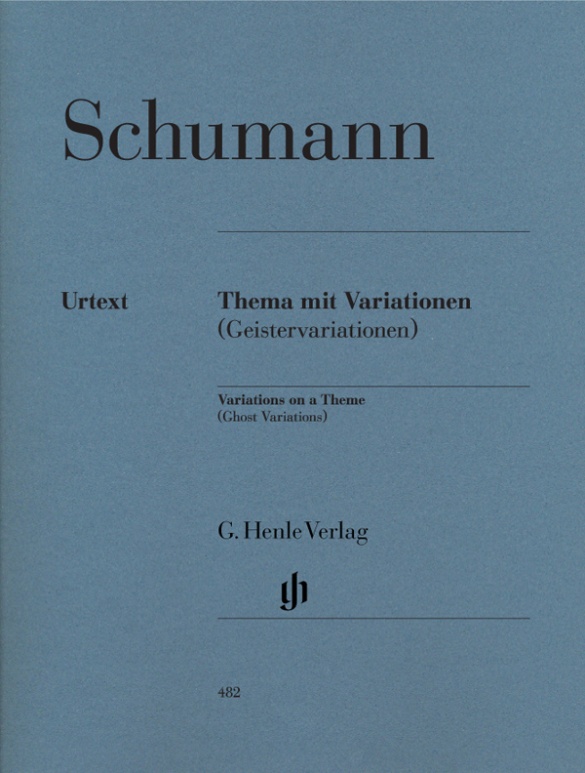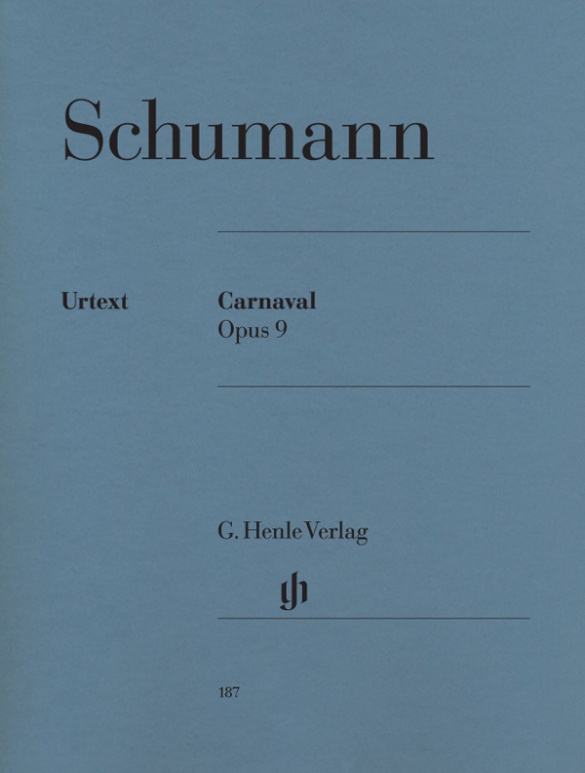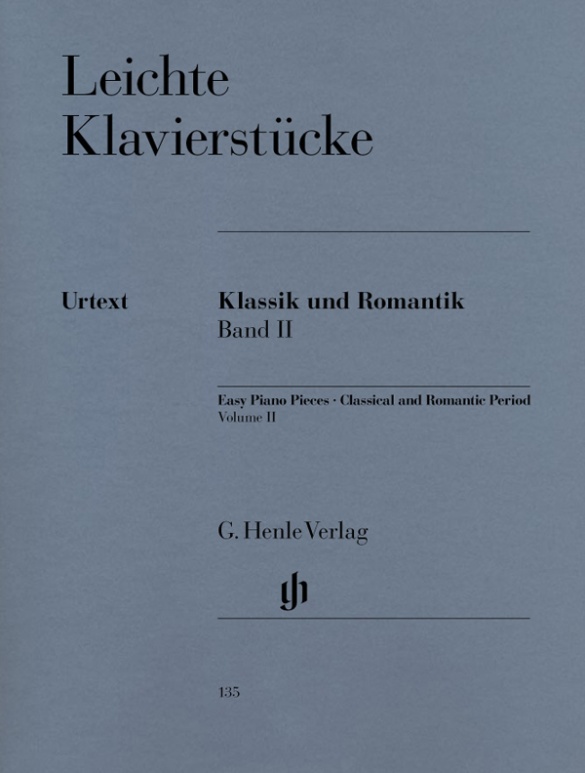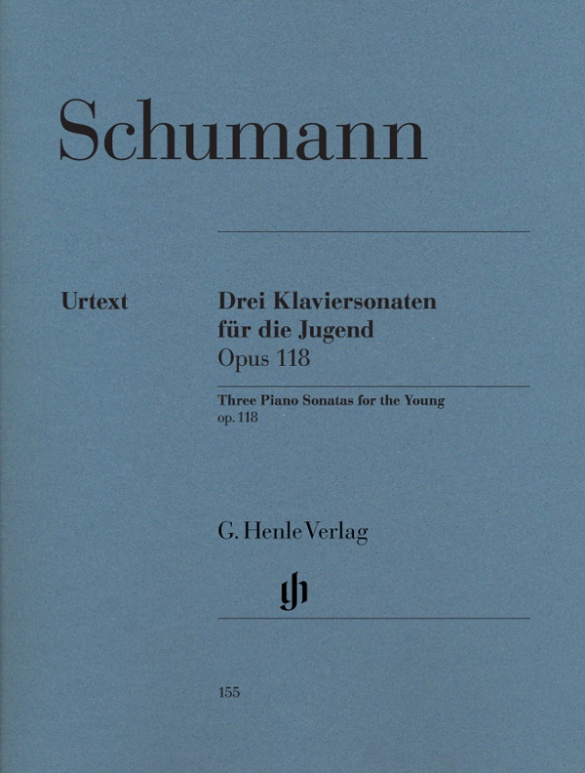Robert Schumann
Variations on a Theme (Ghost Variations)
It was in February 1854, a few weeks before Robert Schumann’s admission to the psychiatric hospital in Endenich, that he wrote his variations on a theme in E-flat major. Because of the extraordinary, personal and moving events of those days, Clara Schumann guarded the manuscript pages of her husband’s final piano composition, dedicated to her and later called “Ghost Variations,” like relics, and prohibited their publication. The first edition was not published until 1939, and in many respects does not correspond with what Schumann actually wrote down. For the first time, the Henle Urtext edition draws upon all the available primary sources, and thus is effectively the only reliable Urtext edition of a work that in recent years has been heard with increasing frequency.
内容/詳細
作曲家について
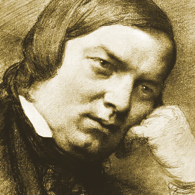
Robert Schumann
Connected with his oeuvre is the term he coined, Poetic Music, with which he strove for a fusion of literature and music, a paradigm particularly seen in his lyric piano pieces prior to 1839. Thereafter he devoted himself to other genres (song, symphony, chamber music, among others).
| 1810 | Born in Zwickau on June 8, the son of a bookdealer. |
| from 1828 | Studies law in Leipzig, piano with Friedrich Wieck. Decision to pursue a career in music. |
| 1830–39 | He exclusively composes piano works, mostly cycles, including “Papillons,” Op. 2 (1829–32); “Carnaval,” Op 9 (1834/35); “Davidsbündlertänze,” Op. 6 (1837); “Kinderszenen” (“Scenes from Childhood”), Op. 15 (1837/38); “Kreisleriana,” Op. 16 (1838); “Noveletten,” Op. 21 (1838). |
| 1832 | A paralysis of a finger in his right hand makes a career as a pianist impossible. Founding in 1833 of the fantasy brotherhood the “Davidsbund” (“League of David”). |
| 1835–44 | Editor of the Neue Zeitschrift für Musik (New Journal of Music). |
| 1840 | Marriage to Clara Wieck; 138 songs, including the Eichendorff Liederkreis, Op. 39; the song cycle “Dichterliebe,” Op. 48 |
| 1841 | Symphony No. 1 in B-flat major (“Spring” Symphony), Op. 38, and Symphony No. 4 in D minor, Op. 120. |
| 1842 | Three string quartets, Op. 41; further chamber music. |
| 1843 | Teacher of composition at the Leipzig Conservatory. Oratorio “Paradise and the Peri,” Op. 50. |
| 1845 | He settles in Dresden. Journey to Russia. |
| 1845 | Piano Concerto in A minor, Op. 54, Symphony No. 2 in C major, Op. 61. |
| 1850 | City music director in Düsseldorf. Premiere in Leipzig of his opera “Genoveva,” Op. 81. Symphony in E-flat major (“Rhenish”), Op. 97; Cello Concerto in A minor, Op. 129. |
| 1853 | Beginning of his friendship with Brahms. Completion of the Scenes from Faust. Violin Concerto in D minor for Joseph Joachim. |
| 1854 | Suicide attempt and admission to the psychiatric institution in Endenich, near Bonn. |
| 1856 | Death in Endenich on July 29. |
校訂者や運指担当者について
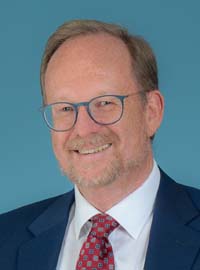
Wolf-Dieter Seiffert (校訂)
Dr. Wolf-Dieter Seiffert, born in 1959 in Frankfurt/M., read musicology, modern German literature, and philosophy at the Ludwig-Maximilians-Universität in Munich. On a scholarship from the “Studienstiftung des Deutschen Volkes”, he did his doctorate in 1990 with a thesis on “Mozarts frühe Streichquartette” (Rudolf Bockholdt). That same year, Seiffert started work at G. Henle Publishers as an editor. Parallel to his work at the publisher, he completed a diploma in business studies at the St. Gallen University, KMU-HSG, financed by the Günter Henle Foundation. Seiffert became managing director of G. Henle Verlag in 2000.
Seiffert has edited numerous Urtext editions for G. Henle Publishers, predominantly on Mozart’s works.

Klaus Schilde (運指)
Prof. Klaus Schilde, born in 1926, spent his childhood in Dresden. There he was greatly influenced by Walter Engel, who taught him the piano (Kodaly method), composition and violin. From 1946–1948 he studied at the music conservatory in Leipzig with Hugo Steurer. After moving to the west in 1952 he studied with Walter Gieseking and Edwin Fischer, as well as with Marguerite Long, Lucette Descaves and Nadia Boulanger in Paris.
Schilde won numerous prizes. From 1947 onwards he gave concerts as a soloist and chamber musician on almost every single continent with renowned orchestras. He taught at the music conservatories in East Berlin Detmold, West Berlin, Munich, Tokyo (Geidai) and Weimar. From 1988–1991 he was President of the Staatliche Hochschule für Musik und Theater in Munich, where he also taught for decades as a professor. There are numerous radio and television broadcasts with Klaus Schilde as well as CD recordings. Schilde has contributed fingerings to almost 100 Henle Urtext editions.
Prof. Klaus Schilde passed away on 10 December, 2020.
製品安全に関する情報

G. Henle Verlag
製品の製造元に関する情報はこちらでご覧いただけます。G. Henle Verlag
Forstenrieder Allee 122
81476 München
info@henle.de
www.henle.com
Inhalt: außergewöhnlich (5 Sterne)Druck: außergewöhnlich (5 Sterne)Layout: außergewöhnlich (5 Sterne)
Music ManualIn typical fashion, G. Henle Verlag, has published this work that demonstrate and reinforce that this publisher is the yardstick/benchmark for other publishers of classical repertoire. Apart from being Urtext editions, I have not seen better notational type-setting in terms of the clear arrangement of bars on the page, the width of the staves, the sizes of the notes and the quality of the off-white parchment which is always a pleasure to read from -- visual accessibility and integrity are never compromised. Apart from the type-setting; I personally find that the G. Henle Verlag editions are excellent in terms of convenient fingerings that are logically and clearly set out -- again it is a joy not to be overly cluttered with editorial markings. Essential publications for the shelves of any serious performer.
Australian Music Teacherおすすめ
autogenerated_cross_selling
このタイトルを含む他の版
このタイトルを含む他の版


